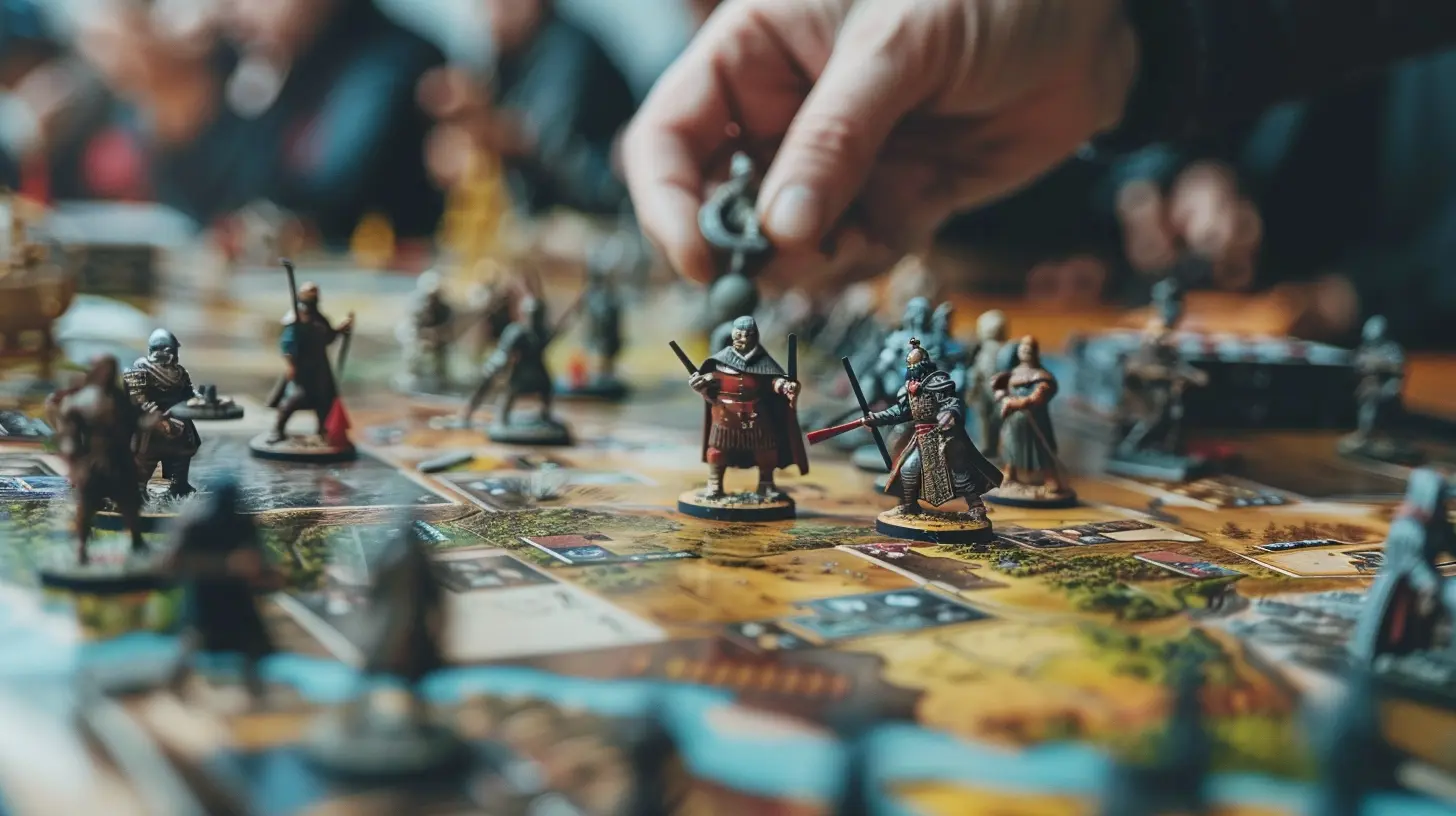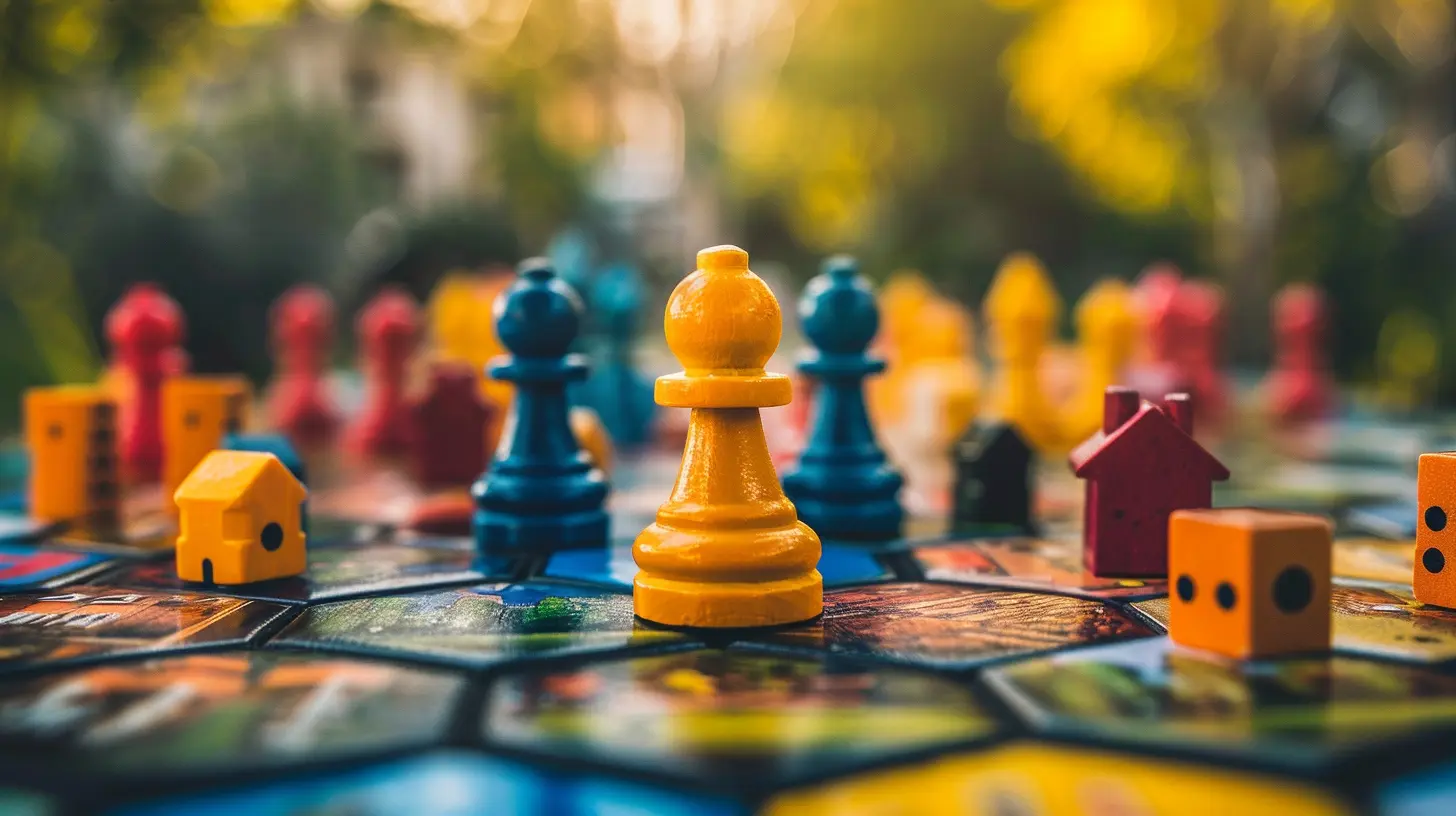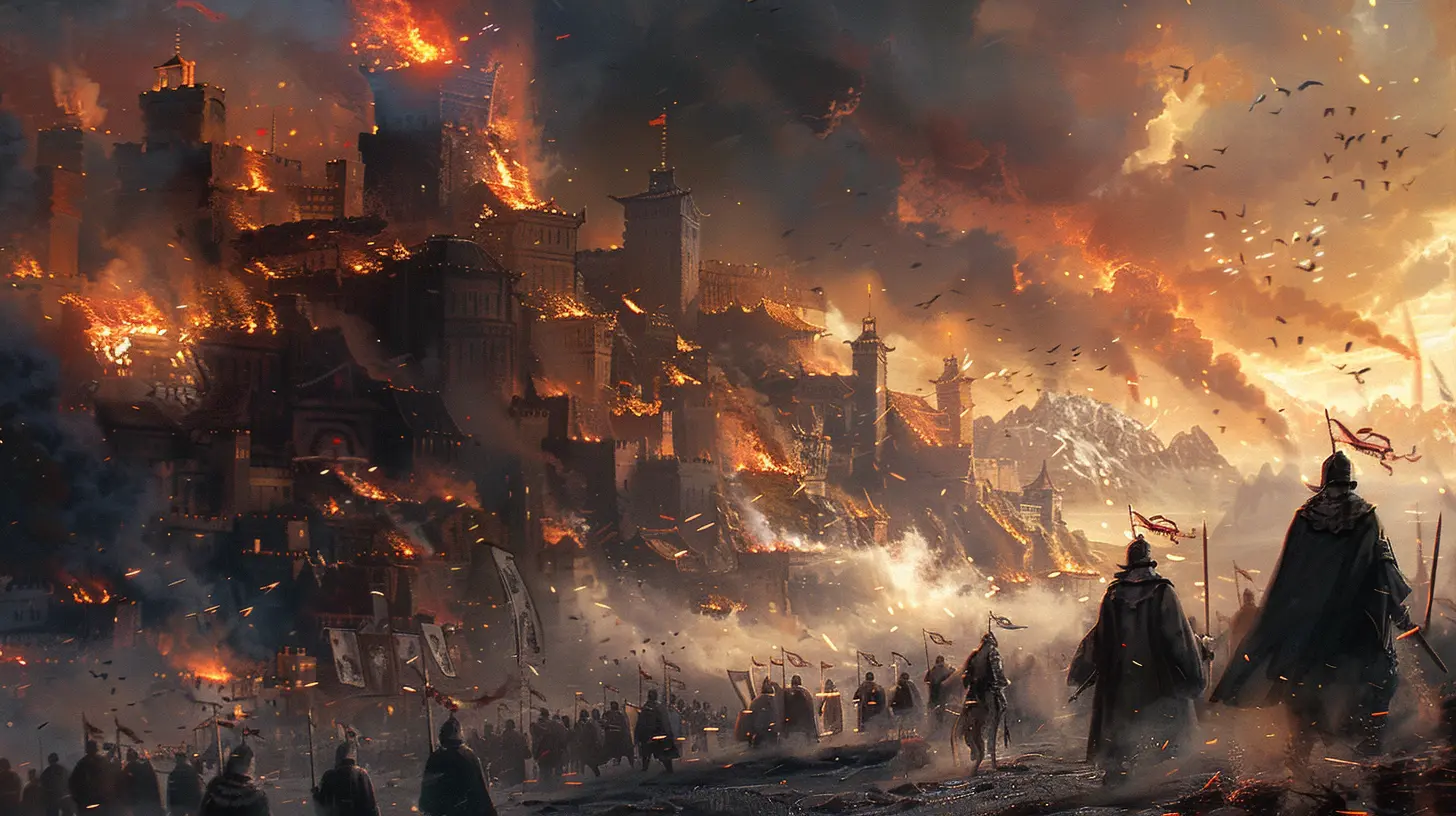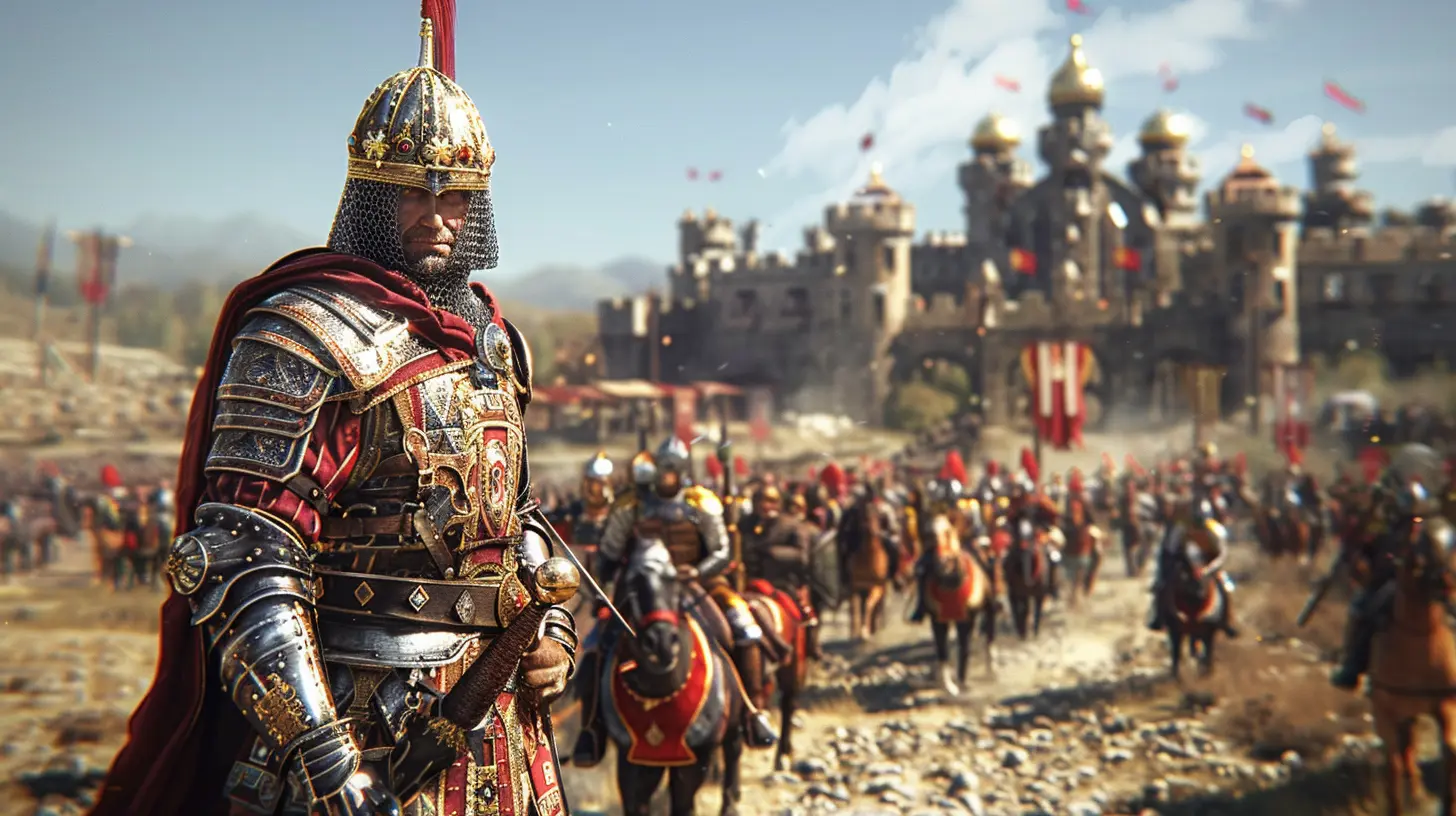Beginner’s Guide to the Essentials of Strategic Thinking in Games
21 November 2025
Ever wonder how some players always seem two steps ahead in any game? Whether you're into chess, MOBAs, card games, or grand strategy titles, there's one common thread weaving it all together—strategic thinking. If you've ever felt like your opponents are playing 4D chess while you're stuck on checkers, you're not alone.
This guide will break down the essentials of strategic thinking in games, tailor-made for beginners who want to up their gameplay. No boring jargon—just simple, real advice you can use right away.
What Is Strategic Thinking in Games, Anyway?
Strategic thinking is all about planning your moves ahead and anticipating your opponent's actions. It’s the mental game behind the actual gameplay—the ability to see the big picture, manage resources, and adapt to changing scenarios.Think of it like being the captain of a ship in a storm. You can’t control the weather (your opponent), but you can steer your ship (your strategy) to stay afloat.
Why Strategic Thinking Matters (A Lot)
Let’s be real. Game mechanics will only take you so far. You can button mash your way through some beginner levels, but the moment you face someone who thinks before they act, things get brutal.Strategic thinking can be the difference between a casual player and a consistent winner. It helps you:
- Predict your enemy’s next move
- Master in-game economies and resources
- Make better decisions on the fly
- Maximize your wins and minimize losses
Essential Pillars of Strategic Thinking
Now that we know why it’s important, let’s dive into the good stuff—the actual components of strategy you need to develop.1. Goal-Setting: Know What You’re Playing For
Every game has a win condition. Your first step in developing strategy is figuring out that win condition and plotting the shortest path to it.Ask yourself:
- What’s my main objective?
- What small steps lead to that goal?
- What does winning look like?
In games like “Sid Meier’s Civilization,” for example, you can win through science, domination, or culture. Knowing your route early helps shape every decision.
2. Resource Management: Play Smart, Not Hard
Resources can be anything—gold, mana, units, time, or even actions. Strategic players know how to stretch resources to their limits without wasting them.Imagine playing chess while blindfolded—you wouldn’t sacrifice your queen just to look cool. Same goes for any game. Spend your resources only where they truly matter.
Hot tip: “Efficiency” is your new best friend.
3. Decision-Making: Think Before You Click
Ever rage-quit after making a snap decision that backfired? Yeah, we’ve all been there. Strategic thinkers pause, assess options, and choose the one with the best long-term payoff—not just the flashiest one.Here’s how to level up your decision-making game:
- Weigh risk vs. reward
- Play out multiple scenarios in your head
- Check for consequences, not just benefits
In fast-paced games, this becomes second nature with practice. Think of it like mental muscle memory.
4. Prediction: Be a Gaming Fortune Teller
You don’t need a crystal ball to predict your opponent’s next move—you just need awareness. Strategic players constantly observe, analyze, and adapt.Start asking:
- What patterns do I see?
- What are they trying to do?
- How can I interrupt their plan?
Games like “StarCraft II” or “League of Legends” are perfect for this. Watch how pros play, and you’ll notice they’re always anticipating the next few moves.
5. Adaptability: Roll With the Punches
Nothing ever goes as planned—especially in multiplayer games. Strategic thinking isn’t just about sticking to a plan; it's about knowing when to drop it and change course.Flexibility is the secret weapon of elite players. Be ready to:
- Switch tactics mid-game
- Recover from losses
- Turn setbacks into setups
Think of it like switching lanes on a highway—sometimes the path to victory is the one you least expected.
Game Types That Sharpen Your Strategic Thinking
Not every game is designed to cultivate strategy. But some genres push your brain into overdrive. If you want to sharpen your skills, try diving into these:🔲 Turn-Based Strategy Games (TBS)
Examples: Civilization, XCOM, Fire EmblemWhy it helps: You have time to think, analyze, and plan. Perfect for beginners building strategic habits.
♖ Real-Time Strategy Games (RTS)
Examples: StarCraft, Age of EmpiresWhy it helps: Forces quick thinking while managing multiple tasks. A perfect grind for multitasking and quick adaptations.
🃏 Card Games & Deck-builders
Examples: Magic: The Gathering, Hearthstone, Slay the SpireWhy it helps: Teaches long-term planning, bluffing, and efficient use of limited resources.
♟ Tactical RPGs / Battle Sims
Examples: Into the Breach, Final Fantasy TacticsWhy it helps: Encourages spatial awareness, action sequencing, and enemy pattern prediction.
The Mental Toolkit: Tricks To Train Your Brain
You don’t just play strategic—you become strategic over time. Let’s look at some exercises to build that mindset.🧠 Play Strategy Games Regularly
Obvious, right? The more you play, the more your brain learns to think strategically. But don’t just play—reflect on your games. What went wrong? What worked?📝 Journal Your Games
Take notes or keep a simple journal of your gameplay. Write down your plans vs. what actually happened. Over time, you’ll spot patterns you didn’t notice before.💬 Discuss Matches with Others
There’s nothing like a good “what would you have done?” convo. Join forums, Discord servers, or subreddit communities where players break down game mechanics and meta strategies.🔀 Try New Strategies
Don’t get stuck in a one-trick pony mindset. Experiment with different tactics—even if they fail. Failure teaches you more than winning ever will.Common Beginner Mistakes and How to Avoid Them
Let’s call out some rookie mistakes, shall we? Knowing what not to do is half the battle.❌ Tunnel Vision
Only focusing on one aspect—like combat—while ignoring economy, map control, or objectives.👉 Fix: Zoom out. Check-in regularly with your game status. Are you progressing toward your real goal?
❌ Overthinking Every Move
Yes, we said think before clicking—but don’t freeze up. Paralysis leads to missed opportunities.👉 Fix: Set a mental timer on decisions. If it takes more than 10 seconds (for fast games), go with your gut.
❌ Playing Reactionary
Only responding to your enemy’s moves instead of forcing them to respond to yours.👉 Fix: Take initiative. Shape the playfield so you’re leading, not following.
How Strategy Evolves with Experience
Your strategic thinking matures over time. When you’re just starting, you might focus on surviving and executing simple plans. But soon, you’ll start thinking like a general:- Anticipating moves several turns ahead
- Optimizing builds and pathways
- Reading your opponents like a book
It’s a journey, not a sprint. You’ll lose games. You’ll feel stuck. But every moment you spend thinking about your plays... sharpens your edge.
Final Thoughts
Strategic thinking isn’t reserved for the so-called “naturals” or hardcore veterans. It’s a skill, plain and simple. And like any skill, it grows with intention and practice.Start by focusing on small, achievable improvements. Set goals. Reflect on your plays. Mix it up. And most importantly—stay curious.
Whether you're leading armies, flipping cards, or casting spells from a digital tower, strategy is your best sidekick. Use it wisely, and the game will never play the same again.
all images in this post were generated using AI tools
Category:
Strategy GamesAuthor:

Audrey McGhee
Discussion
rate this article
2 comments
Daniella Nelson
This guide is a fantastic starting point for new gamers! It effectively breaks down key concepts of strategic thinking, making complex ideas accessible and engaging for beginners. Highly recommended!
February 17, 2026 at 4:54 PM
Blake Newman
This article effectively distills the core principles of strategic thinking, highlighting key concepts like foresight, adaptability, and resource management, essential for newcomers seeking to improve their gameplay.
November 21, 2025 at 4:27 PM

Audrey McGhee
Thank you for your feedback! I'm glad to hear that you found the key concepts helpful for newcomers. Happy gaming!


